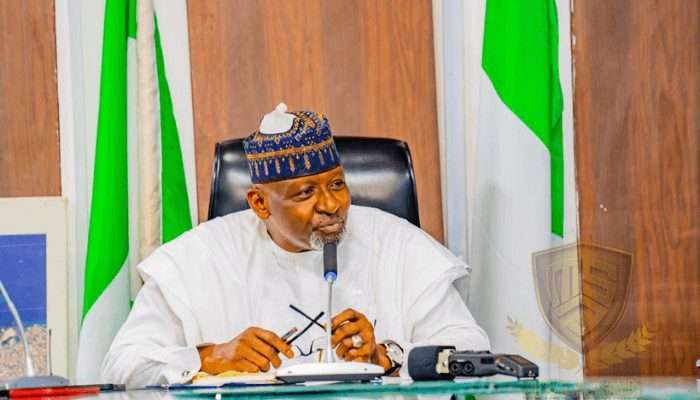
‘Cargo Tracking Note Should Be At No Cost To Importers’
Rev. Jonathan Nicole, a former president of the Shippers’ Association of Lagos State (SALS), has cautioned the federal government to make sure that the Cargo Tracking Note (CTN) implementation is free for importers.
The Federal Executive Council authorized the installation of electronic cargo tracking notes for seaports countrywide on February 15, according to MINIECHAT.
The plan, according to Mu’azu Sambo, the minister of transportation, would address a number of issues, including importers’ under-declaration, concealment, and incorrect categorization of vital cargo.
Nevertheless, Nicole, who praised the policy while speaking to newsmen in Lagos, pointed out that the only difference between the CTN and it was the financial implications.
According to Nicole, the Cargo Tracking Note, which is specifically tied to shippers, is a record similar to a vessel’s Bill of Lading that indicates the specifics of what is declared and functions as a cargo manifest with all the information on what the importer is shipping.
He continued by saying that it displays quality, quantity, and pricing and may really replace a great number of shipping papers, such as the Standards Organization of Nigeria Conformity Assessment Program, rendering them useless (SONCAP).
The cargo tracking notice was one of the documents they obtained from the shippers council as part of the paperwork for clearance in the early 1980s, he said, adding that it was free.
“We are one of the note’s backers because we became tired of the under declaration, customs inquiries, and other issues. When the shippers council announced that the cost would be covered by the shipping lines, we were pleased since we had campaigned for it and backed NSC.
“Initially, the extra costs collected from shippers during shipments should be used by shipping lines to pay for the issue of the CTN documentation. For instance, if the freight forwarder charges much more than necessary for the shipment of the goods from the factory to the ship. What the council is requesting as a return is the extra charge. The CTN fees are summarized by that, he stated.
Nicole further said that the council put everything into a fund rather than expecting the shippers to contribute a proportion so they could operate their own company smoothly.
We are advising them to introduce the cargo tracking note gradually so as not to increase the expense of doing business at the port, he added.
He said that they will pay 0.1% fees to support the development of shipping in two areas, similar to what the Maritime Organization of West and Central Africa (MOWCA) levies, which fee should have been paid by shipping lines.
“They began in 2006, although they only paid fees for a single year. In the end of the day, we were forced to pay hundreds of billions of naira to the shippers.
“Where is the MOWCA charge for shipping development? If you add that money to the Cabotage Vessel Financing Fund (CVFF), we won’t even be talking about having any money to pay our vessels.
“These are the issues that need attention; we do not oppose government; rather, we are looking for ways to assist it in carrying out its duties properly. And everything will fall into place once we are able to execute it correctly, he said.
He asked government to take into account how effectively it would interact with the general population as well as how much they would contribute.
The idea is sound in a civilized society. Why is it that whenever we implement new systems, individuals have issues?” he questioned.





hmm
Hmm
Ensure
Ok
Good
Hmm
Hmm
Period
Hmm
Yes o
Interesting
Okay
Toothache
Yh great
😟
Better
Hm
Why
Traditional
Better
Family
Persecution
Hmmmm
Hop it will not give them the opportunity to bring in illegal goods into the country.
Better
Ok
It’s just that in every government policies, Nigerians always look for loopholes to exploit others.
Okay
Okay
Good
Great
Nice
Ok
Okay
Nice
Wow
Wow
Very good
Okay
Good
Better
Peoples act and all
House .. leadings .. .. things
This should be properly checked before allowing them to carry out such duties
We should be well prepared so that there will not be issue in the act
Hun hun
Better
Good
Okay
Good
Really
Ok
It’s alright
May God help us
God be with us
Amen
wow great
Am waiting
Nice one
Kaii
Nawa o
True
Good
trackers
Okay
If it were to be smaller countries like Benin republic or Niger, it will be of benefit to importers.
Okay
Ok
Alright
Okay